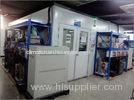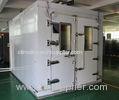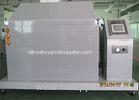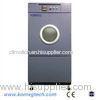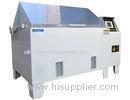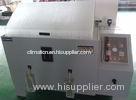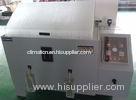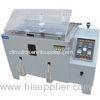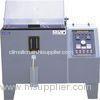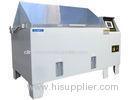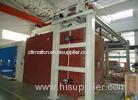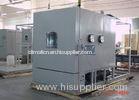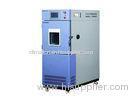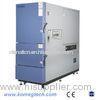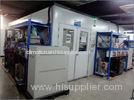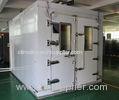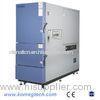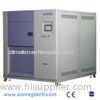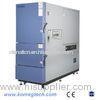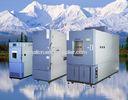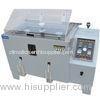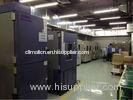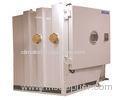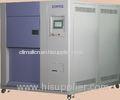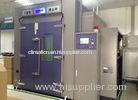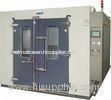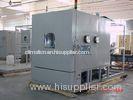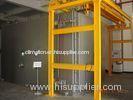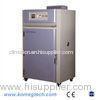Custom 1000L Durable Vacuum Drying Oven With Digital Pressure Control
| Place of Origin: | Zhejiang, China (Mainland) |
|
|
|
| Add to My Favorites | |
| HiSupplier Escrow |
Product Detail
1000L short heating-up times, digital pressure control Vacuum Drying Chamber
<
1000L short heating-up times, digital pressure control Vacuum Drying Chamber
1 Application:
Vacuum is often employed as a process for removing bulk and absorbed water (or other solvents) from a product. Combined with heat, vacuum can be an effective method for drying. High degrees of dryness can be attained at relatively low temperatures. This allows for fast and effective drying of temperature sensitive products. Lower moisture content can be achieved when using vacuum and heat than can be achieved with heat only (particularly with parts that are porous or have a very high surface area). Additionally, drying under a vacuum can prevent oxidation of sensitive product that cannot be dried in the presence of air. Vacuum drying systems can also recover the solvent that is removed from the product, if required. Often the part to be dried is placed into a vacuum drying chamber. However, if the part can withstand, and is designed for vacuum, the inside of the part can be evacuated and dried without the use of a vacuum chamber.
2 Description
A vacuum drying system consists of a vacuum chamber, a mechanical vacuum pump with gauge and valves as well as a source for providing heat to the product to be dried. Both oil-sealed and oil-free (dry) mechanical vacuum pumps can be used. .A condensate trap (typically cooled to very low temperatures) is also used to pump and trap the liquid(s) to be removed. Base pressures of less than 0.1 Torr are often required, depending on the liquid to be removed and the temperatures. Care should be taken to protect oil-sealed pumps from the liquid and operating the pumps properly to minimize the impact of the liquid vapors being ingested into the pump (often with the use of a gas ballast and/or gas purge).
The vacuum drying process often involves multiple steps of applying heat and vacuum. Reducing the pressure (applying vacuum) at the surface of a liquid (such as water) will allow the liquid to evaporate without elevating the temperature. The evaporation of the liquid will continue until the part is dried or until enough heat is removed (through evaporation) that the remaining liquid freezes. At this point the drying process continues as sublimation which is much slower compared to evaporation. In general, this is not desirable. The purpose of heat is to maximize drying while preventing freezing of the liquid.
There are several methods of applying heat to the product being dried. Some products have temperature limitations which may impact which methods may be employed. These methods include:
• Preheating the product using a variety of methods prior to placing into the vacuum chamber.
• Preheating the product in a specially designed vacuum chamber that is configured to provide convection heating as well as vacuum.
3 About KOMEG:
As a professional manufacturer and the best brand climatic chamber in China, KOMEG specialized in Environmental testing equipment for quality conscious people since 1990. Our products are CE approved and we are the supplier for SGS ,UL, and world top 500 companies.
4 What are KOMEG’s Customers?
Our customers are the most important people ever in KOMEG Company. Our customers are not dependent on us KOMEG; We KOMEG are dependent on them. Our customers are not an interruption of our work; there are the purposes of it. We are not doing our customers a favor by serving them, there are doing us a favor by giving us an opportunity to do so. Our customers are not an outsider to our business, there are parts of it. Our customers are not someone to argue with; nobody ever won an argument with a customer. Our customers are not people who bring us their wants; it is our job to fill them profitably to them and to ourselves.
Related Search
Find more related products in following catalogs on Hisupplier.com

Company Info
KOMEG Technology Ind Co., Limited [China (Mainland)]
Business Type:Manufacturer
City: Guangzhou
Province/State: Guangdong
Country/Region: China (Mainland)















